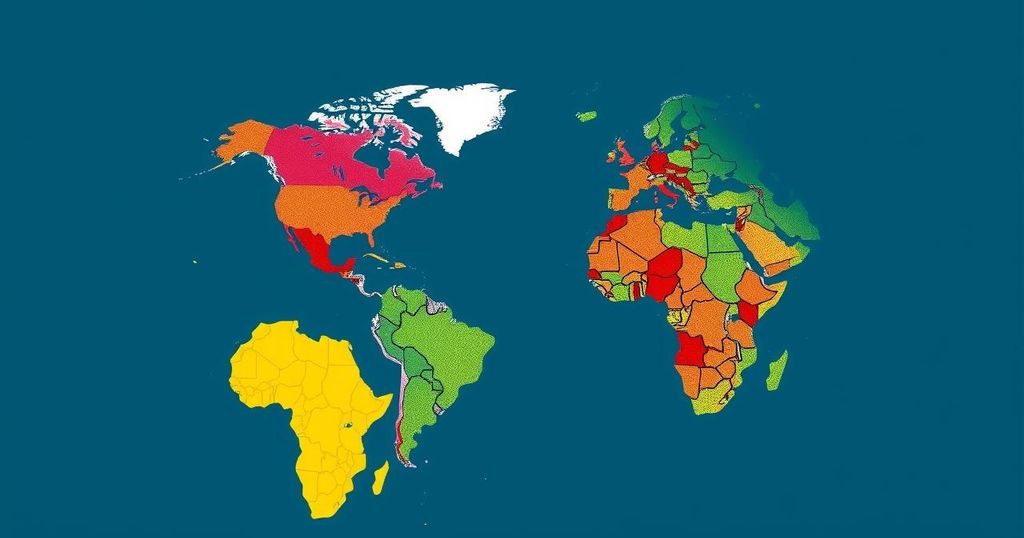At COP29 in Baku, nations agreed to a $300 billion annual finance target for climate change aid, a move that has met criticism from developing countries for its insufficiency. With Donald Trump’s election raising questions about the U.S. commitment to climate finance, the agreement’s effectiveness may be significantly hindered unless all parties fulfill their pledges.
At the COP29 summit held in Baku, a substantial financial commitment of $300 billion annually was established to assist developing nations with the impacts of climate change. However, this agreement has faced significant criticism from its intended beneficiaries, who argue that it falls short of the ambitious support needed. UN Secretary General Antonio Guterres expressed disappointment, stating that, while the agreement serves as a foundational effort, it requires full and timely implementation.
Outgoing President Joe Biden praised the agreement as historic, emphasizing the necessity of further actions to meet climate goals. In stark contrast, Donald Trump’s electoral victory raises concerns regarding the potential for the United States to fulfil its financial commitments, given his administration’s stance on climate change. Trump has previously described climate change as a “hoax” and expressed intentions to withdraw from international climate obligations.
Moreover, Trump has appointed Chris Wright, known for his fossil fuel advocacy and skepticism toward climate change, to head the Department of Energy. This shift in U.S. leadership could significantly alter the landscape of international climate finance, potentially diminishing the contributions from the world’s largest historical polluter.
As global climate crises continue to escalate, the urgency of substantial climate action is more pressing than ever. The impacts are already being felt worldwide, with catastrophic events occurring from Africa to South America. Even developed nations are grappling with extreme weather conditions, highlighting the global nature of climate change and the need for concerted efforts to address it.
The COP29 summit, focused on climate financing and mitigation efforts, took place amidst a backdrop of increasing climatic extremes and geopolitical challenges. As the world anticipates potentially record-breaking temperatures in the coming year, discussions are vital for addressing the financial requirements of developing countries faced with the detrimental effects of climate change. The negotiations also occur against a shift in U.S. policy direction following the recent presidential election, which may dramatically influence international climate commitments and cooperation.
In conclusion, while COP29 established a critical financial framework to support developing nations against climate change, significant reservations remain regarding its sufficiency and the commitment of major economies. The forthcoming U.S. administration under Donald Trump presents an uncertain future for international climate cooperation. As the world grapples with the escalating impacts of climate change, the necessity for ambitious and effective action is more pronounced than ever.
Original Source: al24news.com






